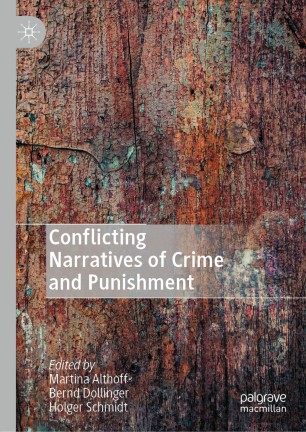

Most ebook files are in PDF format, so you can easily read them using various software such as Foxit Reader or directly on the Google Chrome browser.
Some ebook files are released by publishers in other formats such as .awz, .mobi, .epub, .fb2, etc. You may need to install specific software to read these formats on mobile/PC, such as Calibre.
Please read the tutorial at this link: https://ebookbell.com/faq
We offer FREE conversion to the popular formats you request; however, this may take some time. Therefore, right after payment, please email us, and we will try to provide the service as quickly as possible.
For some exceptional file formats or broken links (if any), please refrain from opening any disputes. Instead, email us first, and we will try to assist within a maximum of 6 hours.
EbookBell Team

5.0
28 reviewsThis book illustrates the importance of conflicting narratives in understanding and dealing with crime, based on a variety of cutting-edge research. Offenders tell stories about crime and punishment, as do policemen, judges and defence lawyers, but so do politicians and the media. Each tells them very differently and only some stories are believed, while others are rejected as implausible leading to conflict. This book explores how these conflicts are carried out and what relationships exist between (often unquestioned) master narratives and (sometimes loud, sometimes silent) counter-narratives? These are questions of central importance for criminology which have thus far received little attention.
This edited collection is international and interdisciplinary in scope, providing empirical insights from such diverse contexts as (social) media, newspapers, comics, police interrogations, social and criminal justice settings, and museum exhibitions. By including contributions from a wide spectrum of academic disciplines and using different methodological approaches, it is of particular interest to students and researchers in criminology and sociology, as well as to scholars of socio-legal studies.